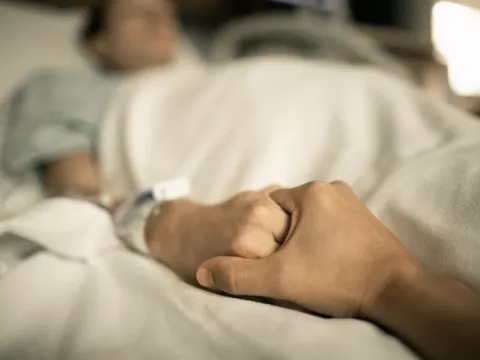- AdventHealth

Choose the health content that’s right for you, and get it delivered right in your inbox.
With so many instances of violence, it’s important to know the resources available in the Kansas City area in case you or someone you know becomes a victim.
Becky Finke, RN, BSN, SANE-A, is the Assistant Manager of the Emergency Department at AdventHealth Shawnee Mission and leads the Forensic Assessment Consultation and Treatment (FACT) program. The FACT program consists of a group of specially trained nurses who are available 24/7, 365 days per year to provide care for patients of all ages who are affected by different types of violence such as sexual assault, physical assault, intimate partner violence, abuse and neglect, and human trafficking.
When victims of violence come to the emergency room for medical treatment at any of the Kansas City area AdventHealth locations, Finke and her team provide a consultation and offer services like injury assessments, documentation and forensic photography, community resources to ensure safety, and assistance filing a police report if desired by the victim. Finke’s team sees about 75 patients per month through the FACT program and helps with resources such as shelter, restraining orders, safety planning, court advocacy and information regarding financial assistance to recover costs associated with the crime.
Although you may hear about assaults being committed by strangers in the news, it’s more likely that victims will know their perpetrator. According to the Rape, Abuse and Incest National Network or RAINN, eight out of 10 sexual assaults are committed by someone who knows the victim.
Many of these crimes are committed by intimate partners. The CDC estimates about one in five women and about one in seven men report having experienced severe physical violence from an intimate partner in their lifetime. However, Finke says it’s often challenging for people to make changes in their life, such as leaving an abusive spouse or partner.
“It can be difficult to help a victim reach the decision to leave an abusive situation,” said Finke. “Oftentimes a person feels it is better to stay until they have a safety plan to leave, or they are reluctant to break up their family by removing or leaving children and pets. And some are simply not financially capable of leaving.”
Taking that first step is difficult. However, if you, a family member or friend is in a high-risk situation, you should know that resources are available.
“We are very fortunate that the Kansas City community has so many resources to help, including MOCSA and Safehome,” said Finke. “Both have 24/7 crisis hotlines that are open 365 days a year. They also provide free resources to help victims with safety planning, financial planning, counseling, childcare and more. Knowing there is support is so important in taking that step to a better life.”
The FACT team is part of the process from start to finish. Once the team completes their assessment, they arrange for an advocate from organizations like MOCSA and Safehome to visit with the patient at the bedside. The FACT team and advocate work together to help victims plan their next steps after leaving the hospital. Finke says she and other nurses from the FACT team also appear in court regularly to testify on the evidence they have obtained as well as their medical forensic exam processes.
“When our patients walk in the door, they are traumatized and scared,” said Finke. “Our ability to be there to support and help makes a world of difference for them.”
For help with any trauma from assault, call FACT at Call913-676-7500 or come straight to one of the four AdventHealth emergency department locations. Visit AdventHealthKC.com/ER to learn more.



